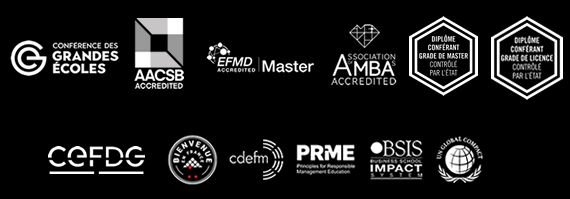The De Vinci Research Center of De Vinci Higher Education hosted the 8th International Conference on Technologies & Organization (ICTO2024) in Paris, France.
The ICTO2024 conference on “Augmented Intelligence for Smarter Societies” highlighted the partnership between human cognition and artificial intelligence (AI) to refine organizational decision-making.
This theme reflected a significant shift from viewing AI as a substitute for human intelligence to a complementary force that enhances human capabilities.
About ICTO
ICTO is an international academic association concerned with the impact of Information and Communication Technologies (ICTs) and smart technologies on organizations and society. Ethics, Diversity, Equity, and inclusion (EDEI) are fundamental principles at ICTO. They are dedicated to promoting these values across their practices, organizations, and institutions and striving to embed them into diverse cultures.
ICTO conferences aim to attract multidisciplinary contributions on information systems from management, business, economy, computer science, artificial intelligence, security, digital transformation, big data analytics, data science, blockchain, e-marketing, biotechnology, operation management and supply chain mainly submitted by international scholars.
The ICTO2024 Conference
Hosted at the DVRC and organized by Peter Saba, Head of Information Systems Management Specialisation, and Dr Antoine Harfouche, Associate Professor of Information Systems (IS) and Artificial Intelligence (AI) at the University of Paris Nanterre, ICTO2024 focused on “Augmented Intelligence for Smarter Societies,” emphasizing the synergy between human cognition and artificial intelligence (AI) to enhance organizational decision-making.
This theme reflects a pivotal shift from viewing AI as a replacement for human intelligence to recognizing it as a complementary force that enhances human capabilities.
The Conference Themes
The conference explored integrating human and AI strengths for more effective decision-making.
The concept of Human-Centric Informed AI highlights the interactive relationship between AI and users, ensuring transparency and understandability. However, realizing Explainable AI (XAI) presents challenges, including balancing complexity with interpretability and ensuring ethical alignment.
Future directions involve developing Responsible AI frameworks and integrating insights from psychology and social sciences to create AI systems aligned with human needs and values.
In addition, the program featured preconference workshops focused on enhancing research writing skills, followed by a series of consortia, parallel sessions, and plenary sessions, providing a comprehensive platform for discussing the latest in Augmented Intelligence and organizational decision-making.
EMLV’s Areas of Interest during ICTO
Among the areas of interest for EMLV were:
- Management and Marketing
- Business Model Innovation
- AI and the Future of Work
- AI and Marketing (B2B, B2C)
During ICTO2024, several notable papers were presented, showcasing innovative research and thought leadership. As an example:
- Laura Recuero Virto from EMLV explored the intersection of telecommunications radiation and green roofs in her paper titled “Telecommunications Radiation and Green Roofs: A Challenge or an Opportunity for the Deployment of Smart and Intelligent Systems?” This research examined how these technologies could synergize to enhance the development of smart systems.

Thierry Delecolle from De Vinci Higher Education during ICTO2024, organized by the DVRC.
- A collaborative paper by Zhenzhen Zhao from Skema, Damien Renard from Université de Louvain, Catherine Lejealle from ISC Paris, and Thierry Delecolle from De Vinci Higher Education, titled “When Algorithms Require Information Disclosure: Exploring the Presence-Privacy Tradeoff in Geomatching Applications for Sustainable Development,” delved into the complexities of privacy and information disclosure in geomatching applications.
This study highlighted the balance required between transparency and privacy for sustainable development, emphasizing the critical role of responsible AI.
The Objectives of ICTO
The conference aimed to explore cutting-edge applications of Augmented Intelligence, discuss its ethical and social implications, and promote interdisciplinary collaboration.
Additionally, it highlighted the importance of Responsible AI in addressing biases, ensuring that AI systems are ethically sound, and enhancing societal well-being.
ICTO2024 provided an international platform for over 30 countries, uniting researchers who shared insights and findings on Augmented Intelligence. Their collaborative exploration aimed to foster the development of more intelligent and more responsive societies to human needs.
Through this collective effort, the ICTO2024 conference sought to chart a future where AI and human intelligence drive societal progress.
DVRs’s Commitment to Innovation
The De Vinci Research Center (DVRC) is transforming the De Vinci Higher Education research ecosystem. It brings together faculty researchers from the engineering school (ESILV) and the business school (EMLV).
Its ambition is to gain international recognition in areas of expertise that contribute to its strategic positioning in terms of innovation, digitalization, transversality, and ecological transition.
Led by Pascale Bueno Merino and Francesco Salvarani, the DVRC aspires to become an international institution in critical areas such as innovation, digitalization, transversality, and ecological transition.
Learn more about EMLV’s programmes and the DVRC.






















